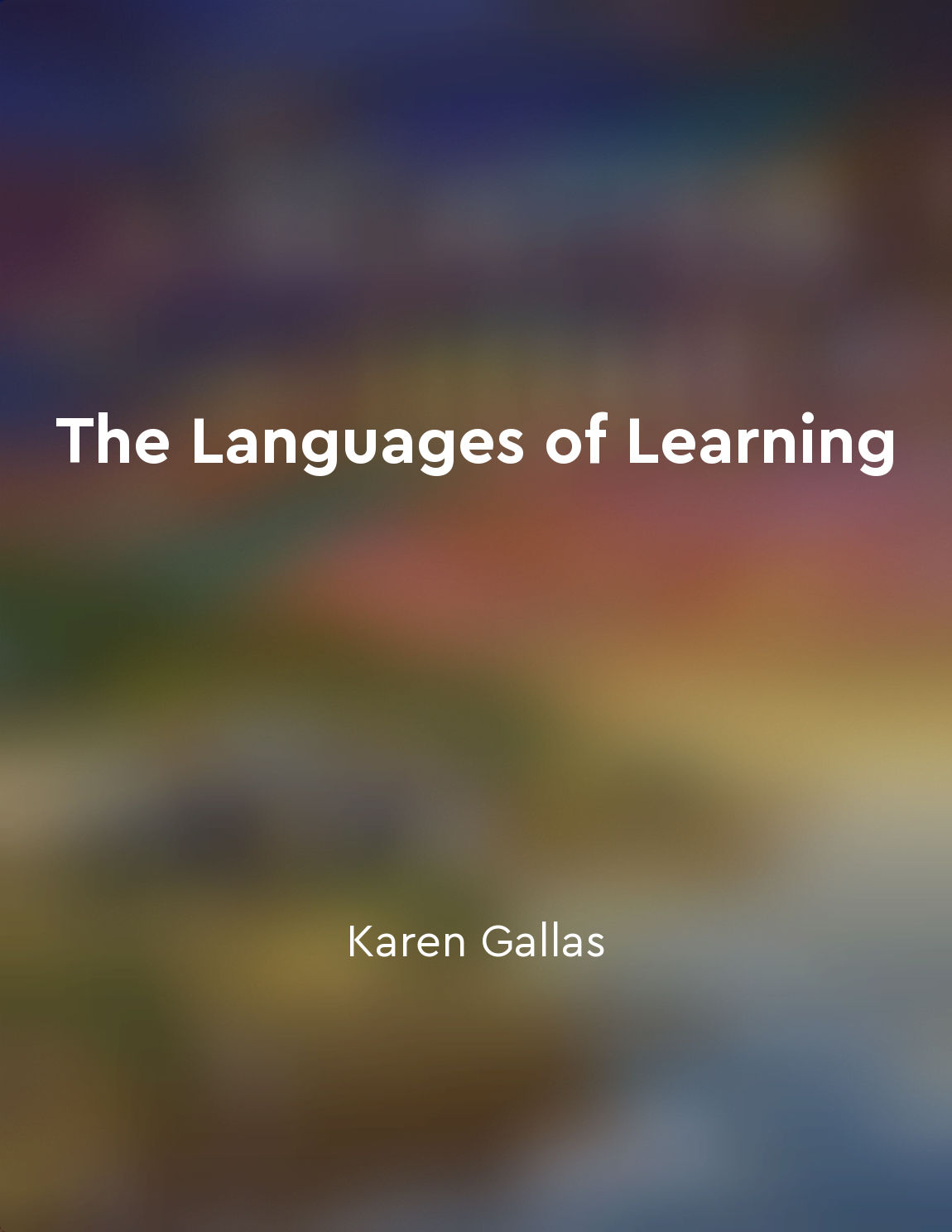Children have their own unique languages of learning from "summary" of The Languages of Learning by Karen Gallas
Children speak their own languages when it comes to learning. Each child has a unique way of understanding, processing, and internalizing information. This concept is central to our understanding of how children learn and grow. It emphasizes the importance of recognizing and honoring the diverse ways in which children engage with the world around them. By acknowledging that children have their own languages of learning, we can better support their individual needs and strengths. This means moving away from a one-size-fits-all approach to education and instead embracing the richness and diversity of children's learning styles. It requires us to listen attentively to children, observe their behaviors and interactions, and engage with them in meaningful ways. Children's languages of learning are not limited to verbal communication. They encompass a wide range of expressions, including gestures, body language, play, and creativity. Children use these languages to make sense of the world, express their thoughts and feelings, and connect with others. By paying attention to these diverse forms of communication, we can gain deeper insights into children's experiences and perspectives. Understanding children's languages of learning also means valuing their autonomy and agency. It involves empowering children to take ownership of their learning processes and to explore the world on their own terms. This requires creating environments that are conducive to children's curiosity, experimentation, and self-expression. As educators and caregivers, it is our responsibility to create spaces where children feel safe, supported, and respected. We must cultivate relationships built on trust, empathy, and mutual understanding. By doing so, we can encourage children to explore their languages of learning freely and to develop their unique voices.- The concept that children have their own languages of learning challenges us to rethink traditional notions of education. It invites us to embrace diversity, creativity, and flexibility in our approaches to teaching and learning. By honoring children's individuality and agency, we can create environments that foster growth, curiosity, and joy in learning.
Similar Posts
Use consequences that teach rather than punish
When your child misbehaves, it's natural to want to punish them. After all, punishment seems like the most straightforward way ...
Happiness is not solely dependent on external factors
Happiness is often thought to be the result of external factors such as wealth, success, or good fortune. We believe that if we...
Embracing diversity and individuality benefits all children
Celebrating the unique qualities and differences of each child can have a profound impact on their development and well-being. ...
Consistency and patience are key in decoding children's nonverbal cues
Understanding children's nonverbal cues requires consistency and patience. It is essential to pay close attention to their subt...

Teach children to set goals
Setting goals is a crucial skill that children need to learn as they grow and develop. By teaching children to set goals, we ar...

Children's languages of learning are rich and diverse
The languages of learning that children employ are vast and varied. Children have their own unique ways of understanding and ma...

Children's languages of learning reflect their cultural background
As educators, it is crucial to understand that children's languages of learning are deeply intertwined with their cultural back...

